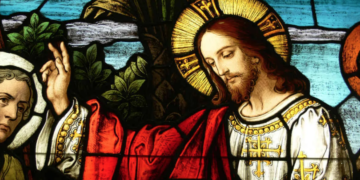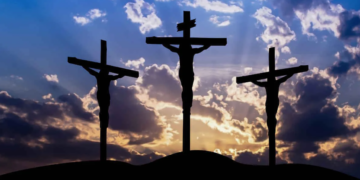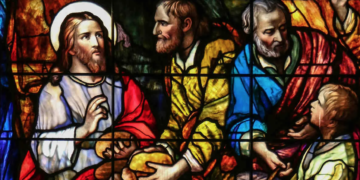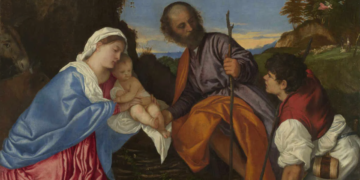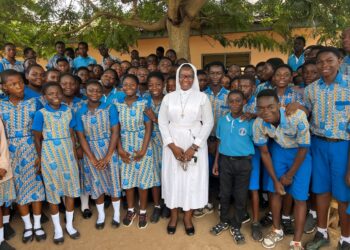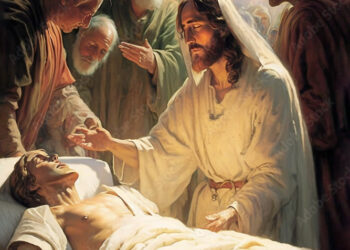Let’s begin with a simple point, so simple that many otherwise intelligent people deny it. Any country – however many and great its virtues – that sacrifices 1 million children yearly to demonic idols (under fashionable euphemisms like “reproductive health”), deserves, if Scripture and right reason are to be believed, chastisement.
Or if the Biblical term is too strong for us today, call it: nemesis, karma, cosmic justice.
That’s us now.
With perhaps even worse to come, over time, given that the Republicans have dropped their longstanding call for a national abortion ban.
But our situation is serious, so let us not just react but reflect.
This week, the Faith and Reason Institute is holding the Twenty-Fourth Free Society Seminar in the Slovak Republic, a yearly event for American and European university students and young professionals founded by the late Michael Novak. We discuss the things – political, economic, moral/cultural (in Novak’s tripartite scheme) – needed for a society that is both free and good.
Classic questions, but sometimes something surprising turns up.
A few years ago, I invited a Slovak who had served in the great Czech dissident Václav Havel’s government, the first after the fall of Communism, to address the students. They tend to be good, idealistic souls, which I think he sensed. So, he asked them: What is the first obligation when you are running for office? “Integrity,” “truthfulness,” “the common good,” were typical responses.
No, he said, first, you must take power.
As I say, I believe he intended this as a corrective to a certain innocence among those particular students. But the dilemma crops up often in democratic systems. William F. Buckley Jr. used to say that he wanted to nominate the most conservative candidates “who can be elected.”
That’s an uneasy truth. George Washington once observed that, “politics is not philosophy,” which has frustrated philosophical minds since, at least, Plato. Then again, if you look at most philosophers, would they run the world much better than the vote-seekers? Many would make things demonstrably worse. In short order.
But there’s a difference between nominating electable candidates and abandoning principles – especially such fundamental notions as protecting all innocent human life, at every stage of development, in any and all conditions.
Yet the political question for us now is this: support for abortion at some stage of gestation is disturbingly widespread (70 percent) in America and has even grown slightly – if you believe the polls – since the reversal of Roe v. Wade. Pro-life laws help change attitudes, pace the pollsters. But we need a huge educational effort, starting with Catholics, on top of the politics, to get anywhere near where we need to be, including an honest acknowledgment of what “the science” has discovered since Roe about life in the womb.

Without a radical shift in popular sentiment, Congress will never initiate a federal ban – i.e., a constitutional amendment – on abortion. But neither can it “codify” abortion “rights.” In Dobbs, the Supreme Court ruled that there is no federal authority over abortion under the Constitution’s enumerated powers, as even some advocates for abortion concede.
The return of the question to the States promises further troubles unless SCOTUS grasps the nettle and finds at some point that human life in the womb is protected under the Constitution. Let us not grow weary working and praying for that day.
The Trump/Vance partial retreat on the right to life is a deep disappointment, and many even see it as a betrayal – despite the retention of several anti-abortion principles. Time will tell if it’s a successful tactic or a surrender. But in democratic politics, no cause is ever wholly lost, or wholly won. Leaders come and go; the struggle goes on.
Besides, we’re at a much more radical turning point in our culture. And not only in the political arena, important as that is. A much deeper and longer battle is playing out beneath the politics, as many of all political persuasions now feel. I was joking with a friend recently and mentioned that Rod Dreher says his aged Southern Louisiana mama often exclaims at our confusions on abortion, gender, etc., “We in Revelations!” My friend nodded but wisely asked: What do we do if we’re not?
We’re probably not. Many of us are going to have to pull on our boots – not wait for “the bishops” or elected officials to do what only “a moral and religious people” can do for America. We also have to appreciate the depth of the problem.
The New York Times, of all places, recently ran a lengthy article by liberal columnist David Brooks, “The Deep Source of Trump’s Appeal.” Brooks believes that our current bewilderment stems from the end of the age that began 500 years ago and the start of something else. Many have argued that we are entering a post-modern or post-liberal moment. That’s clear. What’s less clear is what comes next. For many, says Brooks, Trump’s deep appeal is as a bulwark against exploitation by out-of-touch elites and impending post-liberal chaos.
Vance, who was named after the article appeared, is potentially a leader towards a new, post-liberal order.
My hope, which we’ll be exploring here as the campaigns expose various issues, is that we’ll soon see how what was good in the old modernity depended on Christian principles about the human person, solidarity, subsidiarity, and much more. In short, classic Catholic social thought. Absent those foundations, political, economic, and social reforms only treat symptoms, not the disease.
It’s that or let even worse monsters loose. As W.B. Yeats saw in a vision of the post-Christian world:
twenty centuries of stony sleep
Were vexed to nightmare by a rocking cradle,
And what rough beast, its hour come round at last,
Slouches towards Bethlehem to be born?(from “The Second Coming”)
Actually, it’s cradles emptied by anti-birth ideology and mayhem that may have prepared the way for the rough beast. Pray – and work – that God’s grace and mercy, instead, keep us from that apocalyptic future.

